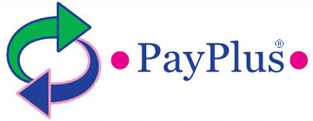New DOL guidelines for regular rate: What Payroll must know Update to procedures for what to exclude Right on the heels of the new overtime threshold comes news that the Dept. of Labor (DOL) is updating the regs in the Fair Labor Standards Act that control the regular rage of pay — for the first time in over 50 years. Many of the changes are designed to clarify which types of incentives and perks can be excluded from the regular rate when calculating overtime pay. Examples of exclusions In the past, the DOL’s indicated it wanted to update the guidelines for the regular rate to more closely reflect how employees are compensated in the modern workplace Pay practices have changed drastically in the last few years alone, and the regs have been falling further and further behind. That’s caused confusion about whether certain types of modern compensation or perks are part of the regular rate. The proposed rule lists specific examples of items that can now officially be excluded from employees’ regular rate of pay, including: Payments for unused paid time off or leave (including sick leave) The cost of providing wellness programs to workers (such as on-site specialist treatment, gym access fitness classes, and employee discounts on products and services) Discretionary bonuses Reimbursed expense (including those that weren’t solely for the benefit of the employer) Tuition programs (e.g., reimbursement programs or student-debt repayment programs) Reimbursed travel expenses that don’t exceed the maximum travel reimbursement allowed under the law, and Benefit programs (e.g., accident, unemployment and legal services). Other updates Besides this clarification on the regular rate, the DOL’s proposed rule will also contain updates about compensation for meal periods, “call back” pay and other situations. More info: dol.gov/whd/overtime/regularrate2019.htm
New DOL guidelines for regular rate:
Recent Posts
Archives
- May 2025
- April 2025
- March 2025
- February 2025
- January 2025
- December 2024
- November 2024
- October 2024
- September 2024
- August 2024
- June 2024
- May 2024
- April 2024
- January 2024
- December 2023
- November 2023
- October 2023
- September 2023
- August 2023
- July 2023
- June 2023
- May 2023
- April 2023
- March 2023
- February 2023
- January 2023
- December 2022
- November 2022
- September 2022
- August 2022
- July 2022
- June 2022
- May 2022
- April 2022
- March 2022
- February 2022
- January 2022
- December 2021
- November 2021
- October 2021
- September 2021
- August 2021
- July 2021
- June 2021
- April 2021
- March 2021
- February 2021
- January 2021
- December 2020
- October 2020
- September 2020
- July 2020
- May 2020
- April 2020
- January 2020
- December 2019
- November 2019
- October 2019
- September 2019
- August 2019
- July 2019
- June 2019
- May 2019
- April 2019
- March 2019
- February 2019
- January 2019
- December 2018
- November 2018
- October 2018
- September 2018
- August 2018
- July 2018
- June 2018
- May 2018
- April 2018
- March 2018
- February 2018
- January 2018
- December 2017
- November 2017
- September 2017
- August 2017
- July 2017
- June 2017
- May 2017
- April 2017
- March 2017
- February 2017
- January 2017
- December 2016
- November 2016
- October 2016
Categories
- 2017 Tax Changes
- 2018 tax changes
- 2019 tax changes
- 2021 Tax Changes
- 2022 Tax Changes
- business expenses
- Checking Email
- compensation
- Covid-19
- deductions
- Department of Labor, labor regulations
- direct deposit
- EEO-1 Regs
- employee benefits
- Fair Labor Standards Act (FLSA)
- FFCRA
- FMLA
- Form I-9
- Garnishments
- Hacking
- hiring
- Identity Theft
- Independent Contractor
- New hire
- Overtime
- Recordkeeping
- reimbursement
- Remote work
- retirement plan limits 2020
- Scammers
- Social Security Limits
- tax rates
- taxes
- Timekeeping
- Uncategorized
- unemployment
- W-2s
- W-4s
- W2 Requirements

Recent Comments